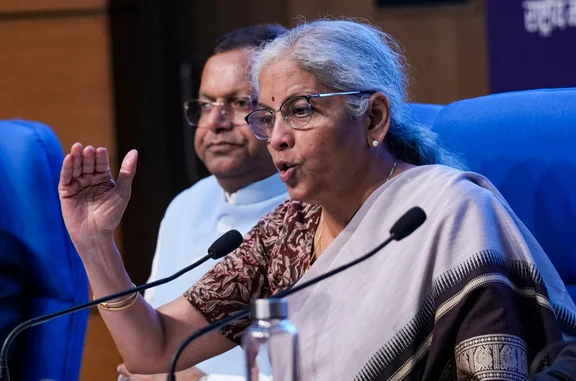Ahead of India’s annual budget next month, an India-centric US business advocacy group in a series of recommendations has underscored the importance of bold reforms to attract fresh investments, strengthen key industries, and elevate the country’s position as a premier global growth driver.
The US-India Tax Forum, a dedicated tax policy Forum of the US-India Strategic Partnership Forum (USISPF), in its comprehensive set of recommendations on Wednesday, offered a blueprint for the reforms that can enhance transparency, reduce complexities, and help unlock the country’s full economic potential.
“The Union Budget 2025-26 comes at a critical juncture for India’s economic trajectory. As global headwinds persist, it is imperative for India to prioritise reforms that foster investor confidence, simplify the tax regime, and provide targeted incentives for sectors with transformative potential,” said Tarun Bajaj, chairperson of the US-India Tax Forum and former Indian Revenue Secretary.
“Recommendations like rationalising TDS structures, extending concessional tax rates for greenfield manufacturing, and supporting GIFT City (Gujarat International Finance Tech-city) as a global financial hub address systemic challenges while opening avenues for sustainable growth,” he said.
Seeking to revolutionise direct taxation, the tax policy forum in its submission to the Union Finance Ministry called for simplifying Tax Deduction at Source (TDS).
Streamline the TDS structure to two or three rates, reducing compliance burdens and enabling businesses to focus on growth, it said.
“Align tax rates for foreign bank branches with those of domestic banks to attract foreign investment and enhance competitiveness. Introduce a concessional 10% tax rate on dividend income for Foreign Portfolio Investors (FPIs) to boost capital inflows,” the forum said.
For making GIFT City a Global Financial Hub, it recommended exempting dividends for shareholders in GIFT City and offering tax exemptions on financial transactions to position it as a central hub for multinational corporations.
It sought to expand Safe Harbor Regulations (SHR) and accelerate the Advance Pricing Agreement (APA) process to create a predictable and transparent tax environment.
The tax policy forum recommended the Indian government extend concessional tax rates for greenfield manufacturing beyond March 2024 to attract investments in high-growth industries like renewable energy, semiconductors, and electric vehicles.
“Reduce tariffs on critical life-saving drugs, including cancer treatments, vaccines, and medicines for chronic diseases and continue exemptions for certain drugs under Patient Assistance Programs (PAP) to ensure equitable access to healthcare,” it said.
“Provide targeted incentives for renewable energy manufacturers and facilitate electric vehicle adoption to reinforce India’s commitment to sustainability while stimulating job creation and technological innovation,” it added.
The forum recommended simplifying the customs tariff structure to a three-tier system (zero, five and 10%) to align with international standards and attract investment in sectors like electronics manufacturing.
It also recommended introducing refund mechanisms for the Equalisation Levy (EL) in cases where tax liabilities are revised. Simplify tax return forms for foreign companies without permanent establishments to ease compliance for digital service providers, reinforcing India’s position as a destination for global tech innovation.
“Addressing transfer pricing complexities through the expansion of Safe Harbor provisions and a more efficient Advance Pricing Agreement (APA) process would significantly reduce litigation and create a predictable, transparent environment for global businesses. By tackling these systemic issues, India can reinforce its position as a preferred investment destination,” Bajaj said.
“By reducing compliance burdens, aligning policies with global standards, and ensuring equitable access to resources like healthcare and renewable energy, the USISPF’s vision strikes a balance between economic ambition and social responsibility,” he said.
“These measures, if implemented, will not only attract significant foreign investment but also catalyse job creation, innovation, and a stronger global standing for India. This is an opportunity to make bold, forward-looking decisions that can define India’s economic destiny for decades to come,’ he added.
. Read more on Budget by NDTV Profit.Recommendations include rationalising TDS structures, extending concessional tax rates for greenfield manufacturing, and supporting GIFT City, Read MoreBudget, Business, PTI
NDTV Profit






